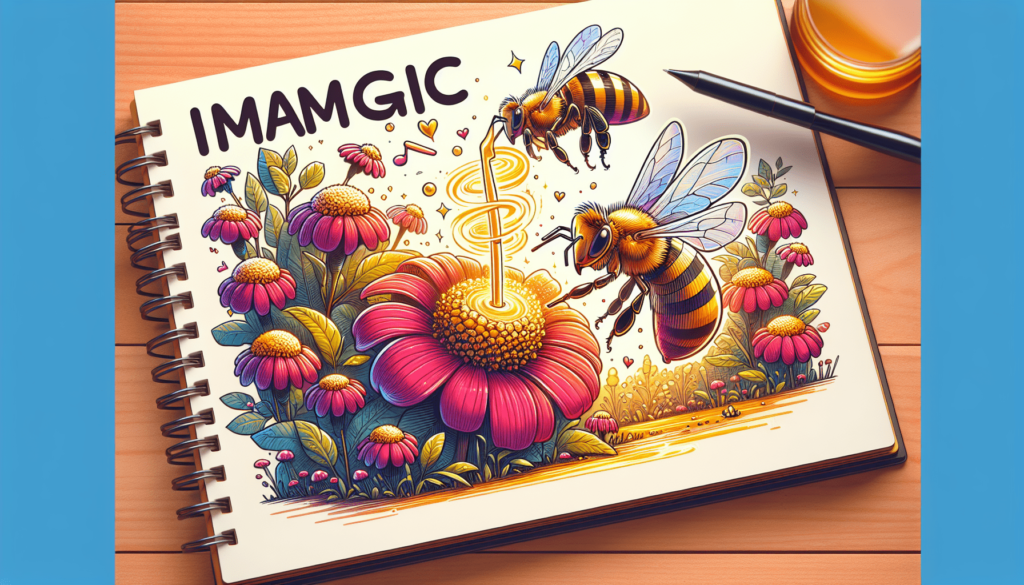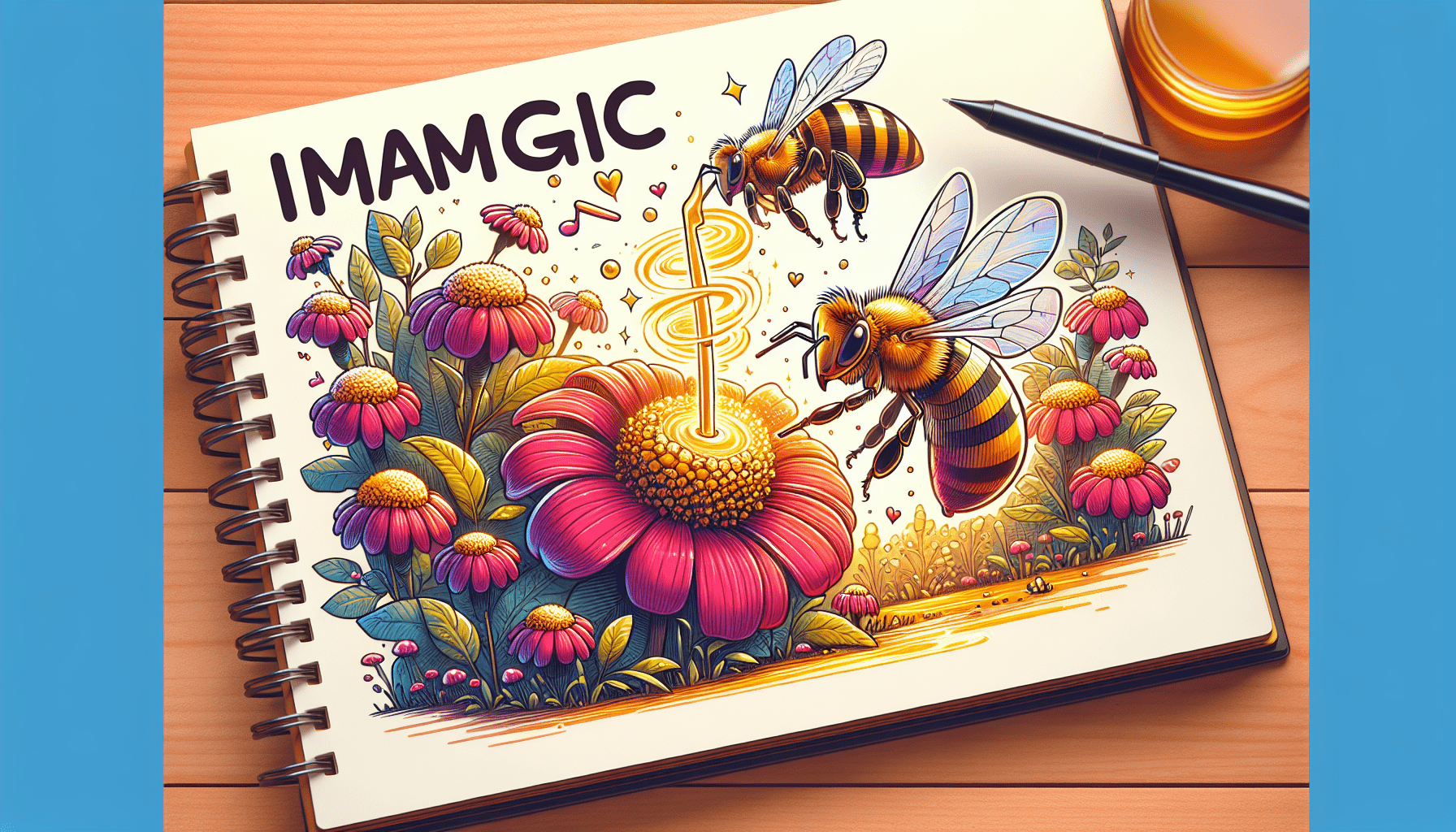Imagine finding a delicious and natural way to alleviate your allergy symptoms. Well, research suggests that consuming honey might just be the solution you’ve been looking for. In this article, we explore the potential benefits of incorporating honey into your daily routine to help combat those pesky allergies. From soothing sore throats to reducing seasonal flare-ups, honey could be the sweet relief you need. So, grab a spoonful and let’s delve into the fascinating world of honey and its potential allergy-fighting powers.

What is honey?
Honey is a sweet and viscous liquid that is produced by bees using nectar from flowers. It has been used for centuries as a natural sweetener, but it also has various medicinal properties.
Composition of honey
Honey is a complex mixture of sugars, water, vitamins, minerals, and antioxidants. It contains different types of sugars, such as glucose and fructose, which give it its sweetness. The color, taste, and aroma of honey can vary depending on the flowers from which the nectar was collected by the bees.
Types of honey
There are numerous types of honey available, each with its own distinct flavor and properties. The type of honey is determined by the geographical location and the plants from which the nectar was collected. Some popular types of honey include clover honey, manuka honey, and acacia honey. Each type may have specific health benefits and uses.
Allergies and allergy symptoms
Allergies occur when the immune system overreacts to a substance that is usually harmless. Common allergens include pollen, dust mites, pet dander, and certain foods. When exposed to these allergens, individuals may experience various allergy symptoms.
Causes of allergies
Allergies can be caused by genetic factors, environmental factors, or a combination of both. Some people may be more prone to developing allergies due to a family history of allergies. Environmental factors, such as exposure to allergens in the air or certain chemicals, can also trigger allergic reactions.
Common allergy symptoms
Allergy symptoms can vary depending on the individual and the specific allergen. Common symptoms include sneezing, runny nose, itchy eyes, coughing, wheezing, hives, and skin rashes. These symptoms can range from mild to severe and can significantly impact quality of life.
Honey as a natural remedy
Honey has been used as a natural remedy for various ailments for thousands of years. Its medicinal properties have been recognized by ancient civilizations, including the Egyptians, Greeks, and Romans.
Historical use of honey as a remedy
Throughout history, honey has been used to treat wounds, soothe sore throats, and relieve coughs. The ancient Egyptians used honey for its antibacterial properties, while the Greeks and Romans used it for its healing and medicinal properties.
Properties of honey that may help with allergies
Honey is known to have antibacterial, anti-inflammatory, and antioxidant properties. These properties may help alleviate allergy symptoms by reducing inflammation, soothing irritated tissues, and providing relief from coughing and congestion.

The honey allergy theory
The use of honey as a remedy for allergies is based on the theory that consuming local honey can expose the body to small amounts of local pollen, allowing the immune system to become desensitized to the allergens.
Theory behind honey alleviating allergies
The theory suggests that by regularly consuming small amounts of honey containing local pollen, the body may become less sensitive to the pollen over time. This desensitization can potentially reduce allergy symptoms when exposed to the same pollen in the environment.
The role of local honey in reducing allergy symptoms
Local honey is often recommended for allergy relief because it is believed to contain traces of local pollen. The idea is that by consuming honey sourced from the same area where you experience allergies, you can potentially build up a tolerance to the specific allergens in that region.
Scientific studies on honey and allergies
Several scientific studies have been conducted to investigate the effectiveness of honey in alleviating allergy symptoms. While the results are mixed, some studies suggest potential benefits.
Studies investigating the effectiveness of honey in alleviating allergy symptoms
Multiple studies have explored the effects of honey on allergic rhinitis, a common allergic condition that causes symptoms such as sneezing, nasal congestion, and itching. These studies have examined the impact of both local and non-local honey on allergy symptoms.
Results and limitations of the studies
The results of these studies are inconclusive, with some showing a potential reduction in symptoms while others find no significant difference. It’s important to note that individual responses to honey may vary, and more research is needed to establish definitive conclusions.
Potential mechanisms of action
The potential effectiveness of honey in alleviating allergy symptoms may be attributed to its various properties and mechanisms of action.
Anti-inflammatory effects of honey
Honey has been found to have anti-inflammatory effects, which may help reduce the inflammatory response triggered by allergens. By reducing inflammation, honey may alleviate symptoms such as nasal congestion and sneezing.
Immunomodulatory properties of honey
Honey also possesses immunomodulatory properties, meaning it can influence the immune system’s response. This property may play a role in reducing the body’s hypersensitivity to allergens and mitigating allergic reactions.
Gut health and honey’s impact on allergies
Emerging research suggests a potential link between gut health and allergic conditions. Honey’s prebiotic properties may contribute to a healthy gut microbiome, which could positively influence the immune system and potentially improve allergy symptoms.
Recommended honey consumption for allergy relief
When considering honey consumption for allergy relief, it is important to note that individual responses may vary. However, there are some general recommendations regarding dosage and frequency.
Dosage and frequency recommendations
To potentially benefit from honey’s allergy-alleviating properties, it is recommended to consume one to two teaspoons of honey per day. It is important to choose raw, unfiltered honey for maximum health benefits.
Considerations for different types of allergies
While honey may provide relief for seasonal allergies, its effectiveness may vary for different types of allergies. It’s essential to consult with a healthcare professional to determine the most appropriate approach for individual circumstances.
Potential risks and considerations
Although honey is generally well-tolerated, there are some potential risks and considerations to keep in mind.
Possible allergic reactions to honey
While honey is considered safe for most individuals, there have been reported cases of allergic reactions to honey. People with known allergies to bee pollen or bee stings may be at an increased risk of experiencing an allergic reaction. It is important to monitor for any signs of an allergic reaction and seek medical attention if necessary.
Quality and purity considerations
To ensure maximum benefit and safety, it is important to choose high-quality honey. Look for raw, unfiltered honey that has not been overly processed or mixed with other ingredients. This ensures that the honey retains its natural properties and does not contain any harmful additives.
Interactions with medication
If you are taking any medications, it is essential to consult with a healthcare professional before incorporating honey into your routine. Honey may interact with certain medications, including blood thinners and antibiotics, potentially affecting their effectiveness or causing adverse effects.
Alternative remedies for allergies
While honey is a popular natural remedy for allergy relief, there are other alternative treatments that may also provide symptom relief.
Other natural remedies to relieve allergy symptoms
Some natural remedies that may help alleviate allergy symptoms include saline nasal rinses, steam inhalation, herbal teas, and aromatherapy. These remedies can provide temporary relief from congestion, inflammation, and irritation.
Comparing honey with alternative treatments
While honey has its unique properties, it’s important to consider individual preferences and responses when choosing among alternative treatments. Some remedies may work better for certain individuals or specific allergy symptoms. Consulting with a healthcare professional can help determine the most appropriate treatment approach.
Consulting a healthcare professional
When dealing with allergies, it is important to seek medical advice, especially for severe or persistent symptoms.
Importance of seeking medical advice
A healthcare professional can help diagnose allergies, determine the underlying causes, and develop an appropriate treatment plan. They can also provide guidance on incorporating honey or other remedies into an existing treatment regimen.
When to consider honey as an adjunct to existing treatments
If allergy symptoms are mild and seasonal, incorporating honey into your routine may be worth considering. However, it is important to consult with a healthcare professional to ensure it is safe and appropriate, especially if you have underlying medical conditions or are taking medications.

